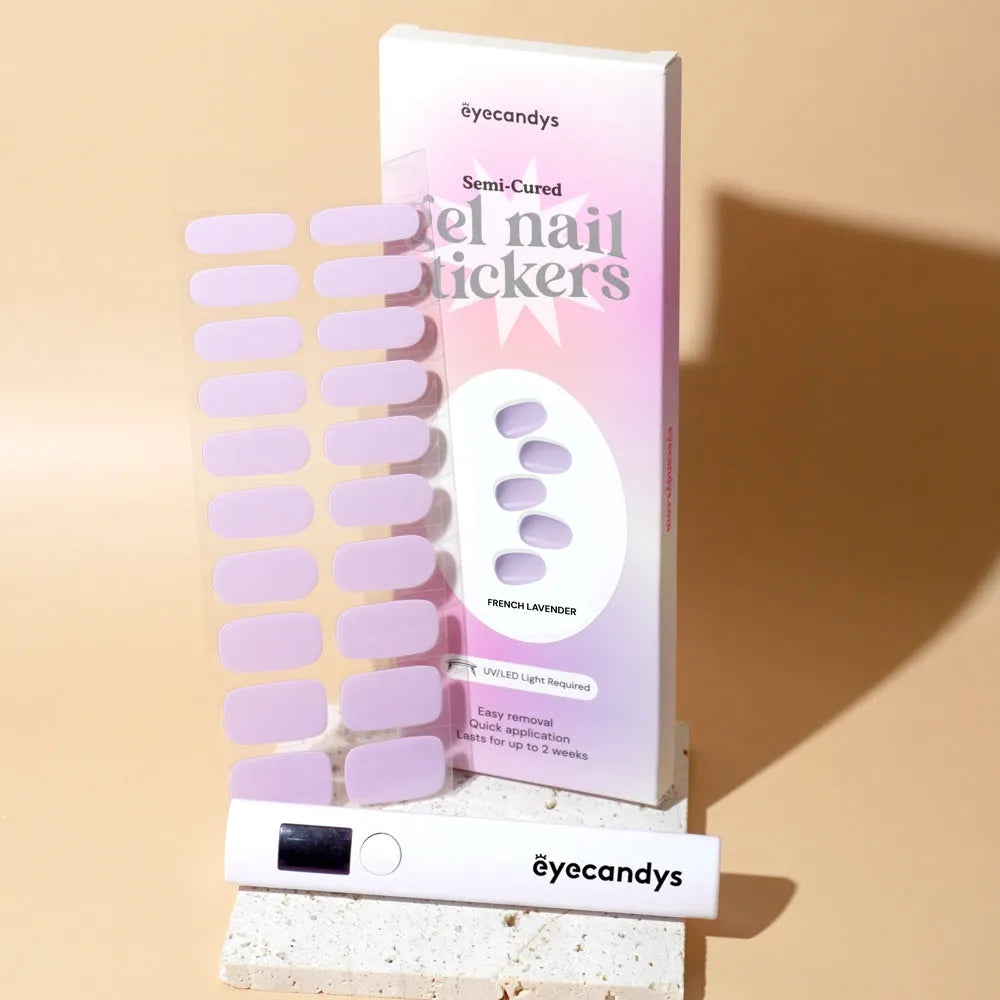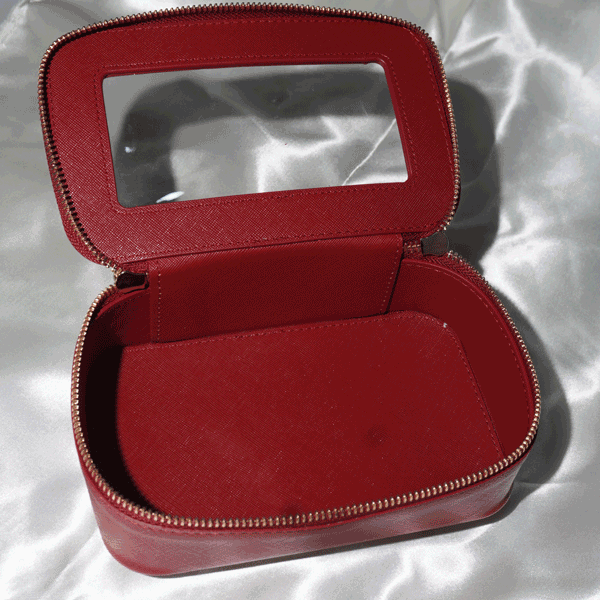Estimated reading time: 7 minutes
Finding the perfect colored contacts isn't rocket science. In fact, you already have all the tools you need: your facial features, hair color, and skin tone.
With so many styles, colors and patterns out there, finding the perfect pair of contacts can feel like looking for a needle in a haystack, especially if it’s your first time shopping for colored lenses. Not to worry though, as you already have all the tools you need to find your best match—your own individual features, of course!
Here, we’ll take you through everything you need to know so you can put all your best assets forward. Plus, we’ll teach you how to create your own signature look and achieve the exact aesthetic you’re going for.
Read on to successfully navigate through the mystifying world of colored contacts:
| Table of Contents |
A Crash Course On Colored Contact Lenses
Before we get started, here are some common terms to familiarize yourself with:
Color Tone
Colored contacts come in a wide spectrum of shades, giving wearers plenty of options to choose from when finding their own distinct style. They can be categorized in three tones: warm, cool and neutral.
Lens Diameter
Width of the lens from one edge to the other.
Graphic Diameter
Width of colored section of lens
Opacity
Transparency of lens
Limbal Ring
Circular area of pigment that forms around the iris
What Lenses Will Suit Me Best?
Facial Features
Eyes 👁
LIGHTNESS OF IRIS
-
Dark eyes
- opaque lenses - changes your eye color completely
- semi-opaque lenses - enhances your natural color
-
light eyes
- can pull off any light color
-
avoid: dark lenses
- will look unnatural against light irises
For a full transformation:
For a subtle enhancement:Dark Eyes
For a subtle enhancement:Light Eyes
For instance, if you have wide set or close set eyes, the color of the lens you choose can either emphasize or de-emphasize this.
Wide-set Eyes
Those with wide set eyes may prefer how they look with light colored lenses better, as a lighter shade will create a visual expanding effect on the iris, making the distance between the eyes appear smaller. Choose a light lens with a bigger graphic diameter for a stronger visual effect.
Close-set Eyes
On the other hand, if you have close set eyes, a pair of light lenses may make your eyes appear to be closer to each other than they actually are. Thus, we recommend going for a pair of dark colored lenses with a smaller graphic diameter, as this combination will have a visual contracting effect on the iris and create the illusion of eyes that are wider apart.
EYE SHAPE
Eye shape is another important factor when it comes to deciding which color contacts to buy, especially when it comes to choosing the right lens diameter. Typically ranging from 13.8 mm to 14.5 mm, here are some pointers on how you can select the most flattering size for your unique features:
If you have monolid, hooded, or smaller almond eyes, a lens diameter of 13.8 mm will be perfect for you.
For those with large, round eyes, a lens diameter of 14.5 mm will highlight your best assets.
But if you want to play it safe, a lens diameter of 14.0-14.2 mm is a foolproof choice that will look good on most people.
IRIS SIZE
Lastly, to find the perfect lens based on your eyes, you will need to get the best fit in proportion to your iris size. To know what will work best, have a look at the proportion of your sclera (a.k.a. the white portion of your eye) to your iris.
The standard ratio is 1:2:1, meaning if the total proportion of your sclera is larger than your iris, then that means your irises are on the smaller side. But if the size of your iris is bigger than the total proportion of your sclera, then you’re one of the rare few born with larger irises.
If your irises are on the bigger side, graphic diameters of 13.2 mm and above will suit you best.
For those with smaller iris size, a graphic diameter of 13.2 mm and below would be the most flattering - just as long as it isn’t too small (such as 12.0 mm), as this would make the white area under the iris more prominent.
Graphic diameter also has an impact on the overall vibe of your look. For instance, a smaller graphic diameter gives a tough and mysterious aura, while a larger graphic diameter provides a cute, doll-like appearance.
With regards to wearability, smaller graphic diameters will give you a more realistic look for everyday wear, while larger graphic diameters translate well in photographs.
LIMBAL RING
Should I get a style with a limbal ring?
Limbal rings do wonders for defining the eyes, and are especially helpful for those with smaller irises who would like to try light colored lenses. This is because light lenses with a larger graphic diameter will inevitably overextend to the sclera, and show a very obvious separation between your iris color and the color of your lenses. Trust us, the last thing you want is a cataract-like look!
Brows & Lashes
Moving outside the eyes, the next features you’ll want to look at would be your eyebrows and eyelashes.
If you have dark eyebrows and full lashes, consider amber or honey colored contact lenses to bring out their natural beauty while allowing your eyes to shine.
On the other hand, you might want to avoid dark lenses with bigger graphic diameters, as this may overcrowd your features, making the area look too busy and disrupting its natural balance.
Nose, Cheeks & Jaw
The lightness or darkness of your colored lenses also have an impact on the rest of your facial features, namely your nose, cheeks, and jaw.
If a chiseled appearance is what you seek, darker lenses such as deep browns and smoky greys will do just the trick, as the tones will seamlessly blend in the natural shadows of your face.
On the other hand, light lenses will create a high contrast with the rest of your features, which may emphasize the width of the nose, roundness of the cheeks, as well as the size of your face.
Hair
When choosing a pair of contacts based on hair coloring, here are two ways to go about it: you can either find a pair that’s perfectly in tune with your hair color, or select a contrasting shade to make your crowning glory stand out.
Whichever goal you have, here are some of our top recommendations for each hair color:
BLACK HAIR
If you’re looking to make a bold statement with your lenses, opt for blue or purple lenses for high contrast. Dark colors are also a must try for those with black hair, as the cohesive tones will give you a cool and mysterious aura.
BROWN HAIR
For a natural look, hazel, amber and other brown tones will pair beautifully with brown hair. Though if you want a bit more contrast, green is another favorite that complements brown hair nicely.
LIGHT-COLORED & BLONDE HAIR
If you have blonde or light colored hair, you really can’t go wrong with blue and green colored lenses. But for a sultrier look, we recommend giving darker neutrals like grey, brown and black a try.
RED HAIR
If you’re familiar with the rules of color theory, then you’ll already know that red hair and green eyes are an unbeatable combo. The two colors sit directly opposite each other in the color wheel, and make each other look brighter when placed side by side.
But for something a bit different, blue lenses will give a mesmerizing contrast against your flaming red locks.
BRIGHTLY COLORED HAIR
To make your hair color pop, a pair of black, brown or grey lenses will be your best bet. Alternatively, you can also go the monochrome route by selecting a shade within the same color family as your hair color.
Complexion
To ensure that you get the perfect color, you’ll want to make sure that you select the right shade for your skin tone.
LIGHT COMPLEXION
Those with fair complexions can pull off almost any color, and should take advantage of being able to rock icy blues and greys like no other.
Our only comment is to perhaps steer clear from colored contacts with a strong yellow undertone (especially if you have a very warm complexion), as this may bring out the yellow tones of your skin in an unflattering way.
MEDIUM COMPLEXION
If you have tan skin, hazel, honey, and green colors will look gorgeous against your bronzed complexion. They’re also perfect for those who love warm toned eyeshadows too.
DARK COMPLEXION
If you’re blessed with more melanin on your skin, warm or smokey colored lenses will look stunning on you. Just be sure not to go too light (such as choosing white-greys and pale blues) as too much of a contrast can make your skin look ashy in comparison.
Conclusion: Finding the Best Colored Contacts for Your Facial Features
| Common terms to know: |
| Color Tone: warm, cool, neutral Diameter: width from one edge to the other Graphic diameter: width of colored section of lens Opacity: transparency of lens Limbal Ring: circular area of pigment that forms around the iris |
Eyes 👁 LIGHTNESS OF EYES
dISTANCE OF EYESWide set eyes: light colored lens + bigger graphic diameter Close set eyes: dark colored lens + smaller graphic diameter eYE SHAPETotal diameter
IRIS SIZEProportion of sclera and iris (1:2:1)
lIMBAL RING
|
Dark & Full Eyebrows or Eyelashes 🧏🏻♀️
|
Nose, Cheeks, & Jaw 👃🏻
|
Hair 👩🏾🦰 bLACK hAIR
BROWN HAIR
BLONDE/LIGHT COLORED HAIR
bRIGHTLY COLORED HAIR
rED HAIR
|
Complexion 🎨 LIGHT
mEDIUMHazel, honey, and green lenses work best dARK
|
One Final Tip
So there you have it - all the tricks and techniques anyone would ever need to find their perfect lenses. But while your features are a sure fire way to learn the colors that suit you the most, we would like to emphasize that style is completely subjective, and what matters most is selecting a pair that makes you feel the most confident.
Remember, your individual features should serve as a guide, not a rulebook. Play by your own rules and have fun with the process!
To make things easier, we also highly recommend you check out our color contact lens quiz, which will help you find your perfect color lens match in just 40 seconds!
If you liked this article, do leave us a comment below or share it with a friend who would find these tips helpful!
Find out which lens colors and styles best complement different face shapes and features.
Not sure which colored contacts to buy? 💭
Take our quiz to discover your new holy grail and stand a chanceto win your perfect pair of color contacts!




